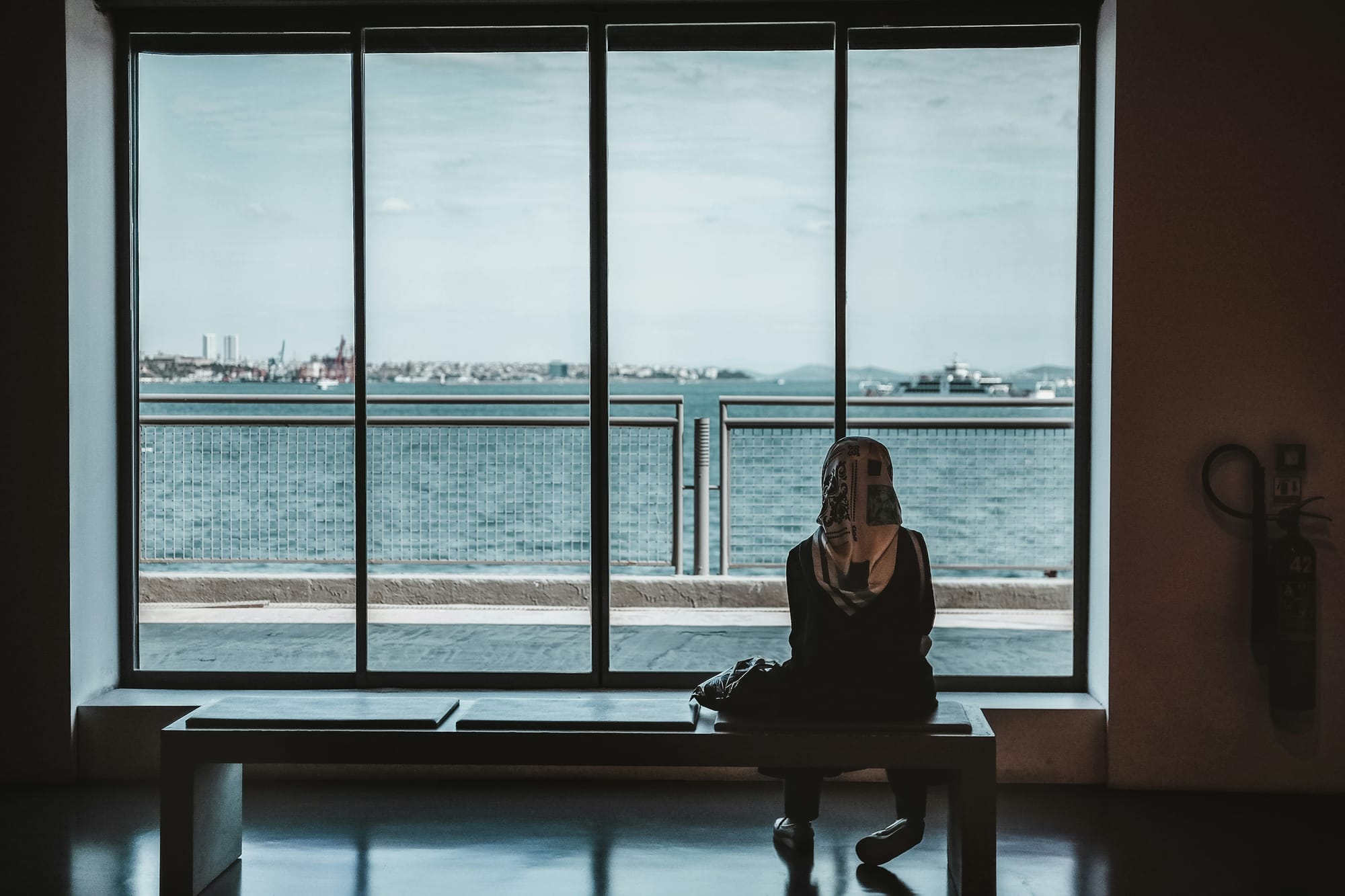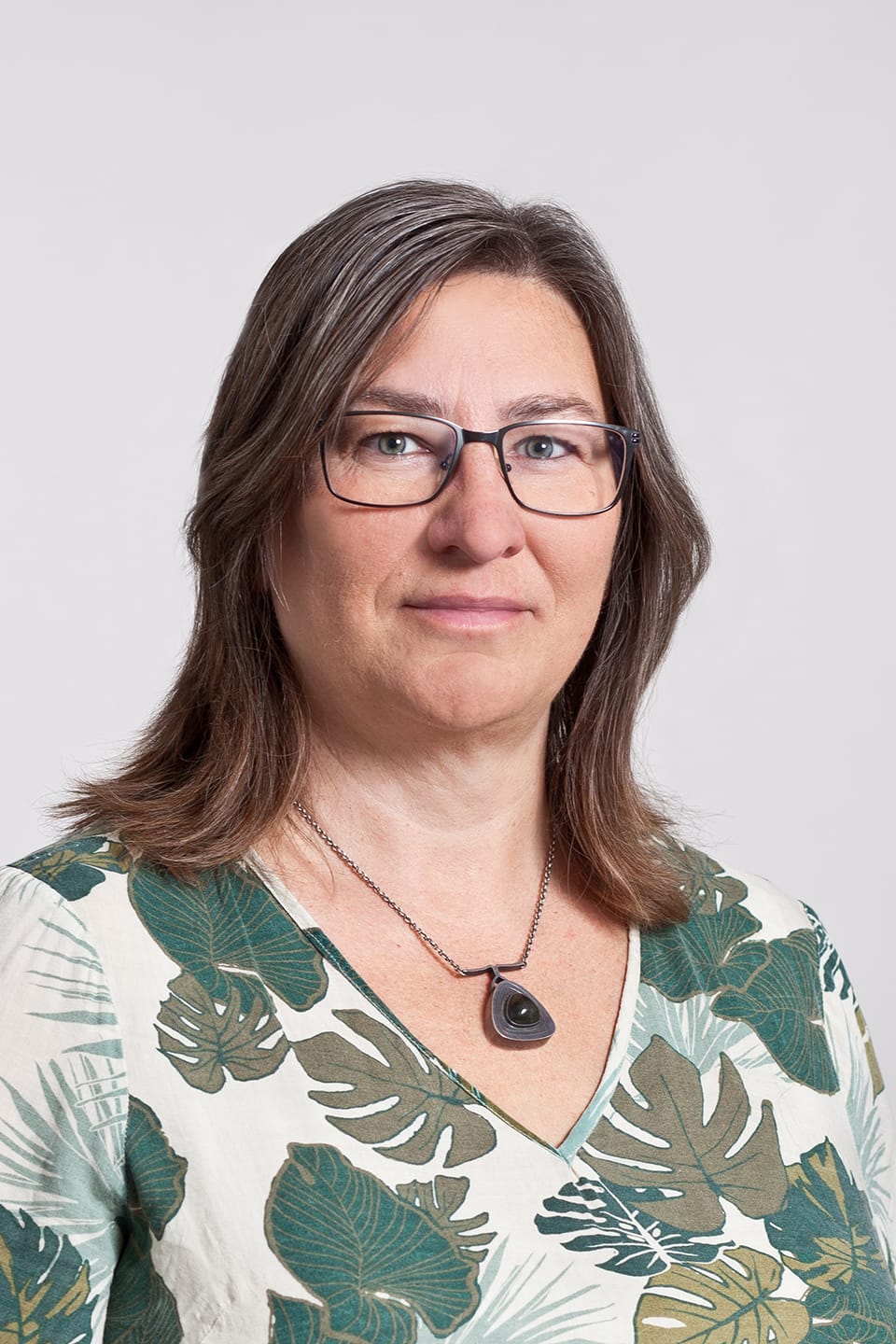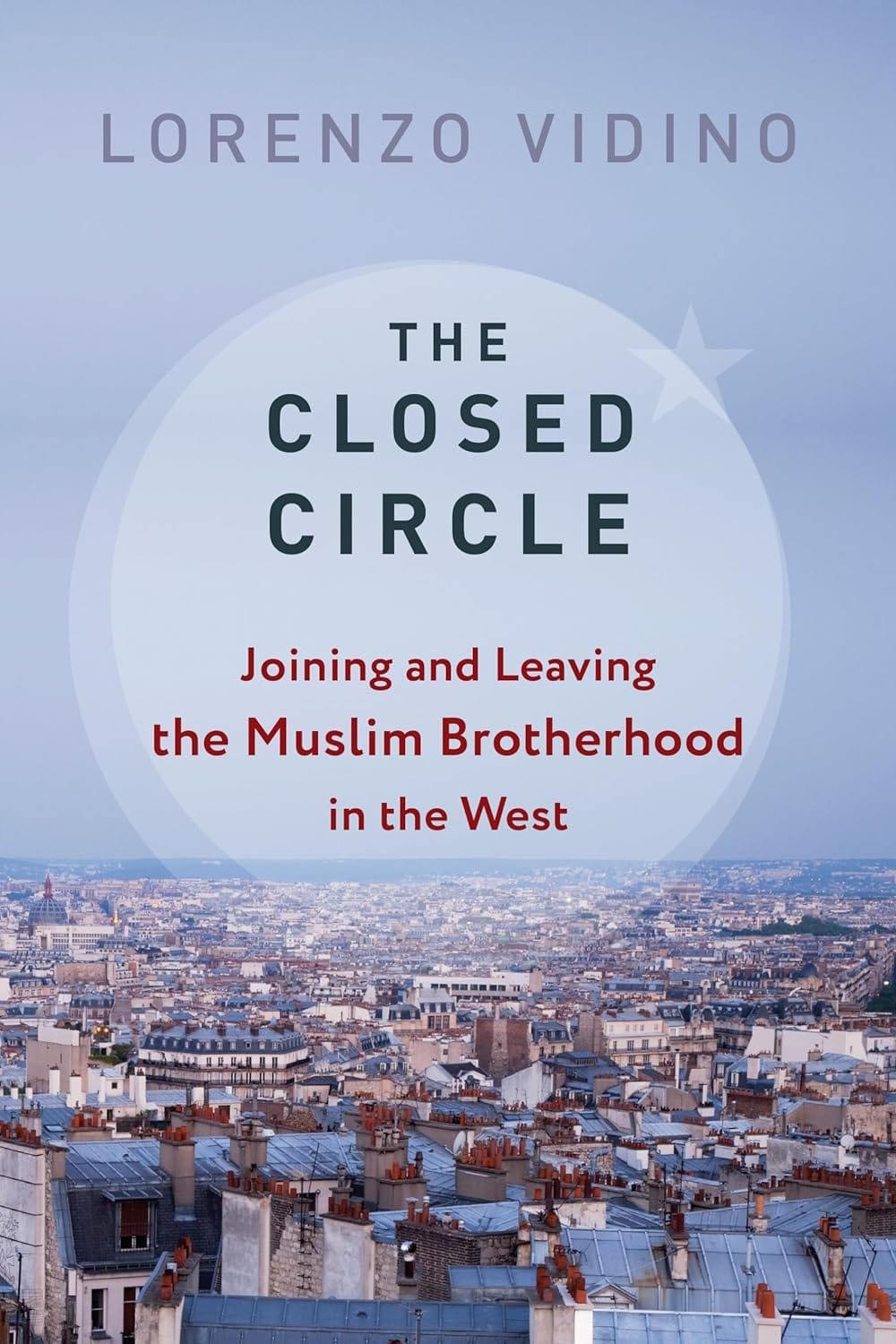Top Stories
Life With the Muslim Brotherhood: One Woman's Story
“It’s like the story of the boiling frog,” she says. “The water gets warmer and warmer and she always tells herself she can jump out any time."

Though the Muslim Brotherhood often has taken center stage in foreign-policy debates over the last two decades, the transnational Sunni Islamist organization remains somewhat mysterious. Even following the Brotherhood’s rise to power in Egypt (and subsequent fall), scholars and policymakers have disagreed on the group’s nature—including the scale of its membership, its aims and its financing methods. Some experts even question whether it makes sense to speak of the Muslim Brotherhood as a unified entity.
Lorenzo Vidino, director of the Program on Extremism at George Washington University, has studied the Muslim Brotherhood closely since the days before 9/11. In The Closed Circle: Joining and Leaving the Muslim Brotherhood in the West, recently published by Columbia University Press, Vidino profiles a dozen individuals who abandoned the Muslim Brotherhood following periods of deep involvement with the group in Europe and North America—including, the Swedish woman whose story is the subject of the book excerpt that follows.
* * *
Born in 1965, Pernilla Ouis grew up in a large Swedish family with four siblings. When she was six, her mother died and her older sister “became a mother” to her. It was that sister who, years later, introduced Pernilla to Islam. A “spiritual person, a searcher,” as Pernilla describes her, she had gone to study Buddhism in China; but after meeting Muslim students there, she became fascinated with Islam, which she found “more natural and egalitarian.” In 1984, she came back to Sweden, “a veiled convert,” and soon married an Egyptian Islamist who lived in Stockholm. “I was a teenager and I remember that my family and I thought the whole thing was very stupid,” Pernilla remembers. “We were also horrified when she and her husband burned her books about Buddhism; the act of burning books recalls such bad images.”
In November 1985, her sister had her first baby, and Pernilla, who lived in the university town of Lund, went to visit her in Stockholm. “In the span of a few weeks, I went from thinking that this whole Islam thing was nonsense to marrying an Algerian Islamist,” she says with a sardonic smile. Her brother-in-law had introduced Pernilla to a young Algerian physics student and told her that he needed to get married in order to obtain a permanent permit to stay in Sweden and avoid going back to Algeria, where he would have been drafted to serve in the army.

Pernilla lists many superficial reasons why she lightheartedly decided to marry the Algerian student: he was “nice looking, kind, and exotic”; she was “bored with university life” and this was “a fun experience”; and she thought that “Arabs were misunderstood” and this was a nice way of helping one. On a deeper level, she now believes, “I was subconsciously doing so to please my sister, to whom I had always looked up.” On December 28, 1985, the couple were married in an Islamic wedding ceremony even though, from Pernilla’s point of view, “it was clear it was not a real marriage.”
Yet, after the wedding he moved in with her, as he had no other place to stay, and after a few months she became pregnant. Pernilla had been adamant about her intention not to convert to Islam, but she succumbed to increased pressure from her husband, her sister, and her brother-in-law to raise the child Muslim and therefore be a Muslim herself. “Confused,” she converted and adopted the name Soumaya shortly before her first child’s birth.
In the summer of 1987, she traveled to Algeria for the first time to meet her husband’s family. He asked her to wear the hijab, arguing that his family would not accept her if she did not. She complied but made it clear this concession was just temporary. But upon returning to Sweden, he told her that it would be a great sin to take the veil off and she begrudgingly assented to begin wearing it permanently. “It’s like the story of the boiling frog,” she says. “The water gets warmer and warmer and she always tells herself she can jump out any time; but, at some point, it becomes so hot she can no longer jump and gets boiled: that was me.”
At the same time, she says that her life was not unpleasant or oppressive. The couple lived in university housing in Lund, where her husband was pursuing a doctorate, and they had many friends within the campus’ and town’s relatively large Muslim community. She had become a practicing Muslim, but mostly because it was “a social thing.” “I did not have a deep belief in Islam,” she recounts. “I never felt a spiritual connection; praying felt like gymnastics.” Still, she found some attractive qualities in it. “Islam was logic: you are doing the right thing, all rules are clear, there was no relativism, none of that postmodern nonsense, everything is simple and clear.”
Pernilla’s life revolved around her family and her husband’s friends in Lund’s Muslim community. But during his time in Lund, says Pernilla, her husband’s views radicalized. He already had very conservative and politicized views when she first met him, but with the beginning of the civil war in his native Algeria, “his positions hardened and became more jihadi-leaning.” According to Pernilla, he embarked on a radicalization process that saw him move within the most militant segments of the Swedish Islamist scene of the 1990s and included travels to Afghanistan and Pakistan.
“Most of the people writing in Salaam were women, converts who had married Brotherhood guys,” recalls Pernilla. After 1996, right after Pernilla’s tenure, the position of editor was occupied by Helena Hummasten, a Finnish convert to Islam. Hummasten later held leadership position in two key organizations of the Swedish Brotherhood milieu, Ibn Rushd and Sveriges Muslimska Råd (the Muslim Council of Sweden).
Pernilla describes Salaam as the stage of an intellectual battle between the Brotherhood pioneers who started and funded it and many of the mostly female converts who, fluent in the Swedish language, worked in it. “We wanted to write about Sufism, wanted to talk about many things, wanted to create a blue yellow Islam,” recalls Pernilla, “but there was a lot of pushback. The Brothers just wanted us to translate [the writings of the Brotherhood leader Sayyid] Qutb and shut up.”
Despite these issues, Pernilla did not mind her work at Salaam. She thought she was “promoting Islam in Sweden,” and, like most other converts who worked there, she had no idea that Salaam was a Brotherhood outfit. “Had somebody told us,” she says, “we would have rejected it outright and thought it was an attempt to smear Islam. We were very naïve.” The one person who told Pernilla that Salaam was linked to the Brotherhood was her husband—a warning that, paradoxically, only made her commitment to Salaam stronger. Her husband, despite having been close to the Brotherhood in his early days, “despised the Brothers” and chastised his wife for working with them. “That made me see the Brothers as the good guys,” Pernilla admits. “If my husband, who was an extremist, disliked them, then they were moderates.”
Her perceptions began to change in 1996, as she started a PhD in human ecology. “They teach you to deconstruct everything,” says Pernilla with a smile. “University corrupted my Islamic identity.” The critical thinking she adopted all day in her studies “conflicted with what I found every night at home,” and the former slowly began to prevail over the latter. Her relationship with her husband increasingly deteriorated, leading her to spend more and more time outside the house.
It was around that time that Pernilla began to be drawn to a couple who would have a huge influence in her life: Anne Sofie Roald and Adly Abu Hajar. Anne Sofie Roald is a charismatic Norwegian convert to Islam and accomplished academic who quickly became Pernilla’s best friend. The two became inseparable, traveling the world to attend conferences and writing about various aspects of Islam. Eleven years older than Pernilla and extremely knowledgeable about Islam, Roald became, as Pernilla puts it, her “teacher, best friend, and mentor,” accompanying her on a journey that led both women away from Islamism. “By embracing a more liberal…Islam,” she explains, “she made her exit from Muslim Brotherhood movement.”
While the two women charted their own trajectory, a crucially important influence on them was Roald’s husband, Adly Abu Hajar. Born in Yaffo [part of Tel Aviv] and raised in Jordan, Abu Hajar has been a prominent Islamic activist since he arrived in Europe in the early 1980s. According to his own account, his first contact with the Brotherhood did not take place in Jordan or in Algeria, where he pursued his undergraduate studies, but in France, once he arrived in Lille to further his education in urban planning. The French college town has been a Brotherhood hub since the early 1980s, and Abu Hajar immediately gravitated toward the group. He became close to Faysal Mawlawi, the leader of the Lebanese branch of the Brotherhood, who spent several years in France and played a crucial role in the founding of two French Brotherhood institutions, UOIF and IESH. Abu Hajar also became a key player in Brotherhood networks first in northern France and then across the border in Belgium, where the Brotherhood asked him to establish a presence.
Yet despite these close connections, Abu Hajar claims he never formally joined the Brotherhood, though he was asked several times to do so. He insists, “I always told them that we think alike, that we all work for Islam, but my allegiance is for Allah alone, not for any organization. I work for Islam, not for the jamaa [‘the group,’ as the Brothers often refer to the Brotherhood].” By his own account, Abu Hajar was a fellow traveler of the Brotherhood, involved in very high-profile activities of the group’s early days in Europe but never a formal member.
Some of Abu Hajar’s most prominent activities during those days pertained to his role in the International Islamic Federation of Student Organizations (IIFSO). Less known than Saudi-based organizations such as the Muslim World League or the World Assembly of Muslim Youth (WAMY), groups with which it cooperates closely, IIFSO has been equally important in bringing together Brotherhood leaders and activists from all over the world. It was founded in 1969 after a two-day meeting at the Bilal mosque in the German college town of Aachen. Not coincidentally, the Bilal mosque was the headquarters of Issam al Attar, a prominent leader of the Syrian Muslim Brotherhood in exile and, together with Said Ramadan and Yussuf Nada, one of the very first pioneers of the Brotherhood in the West.

In the mid-1980s, Abu Hajar served as IIFSO’s representative in Europe, a position that enabled him to travel throughout the continent and around the world. While he worked side by side with Brotherhood leaders and organizations on many activities, he also started his own initiatives, which at times differed from the Brotherhood’s in their aims and partners. This independence led him to clash with some of the more conservative segments of the global Muslim Brotherhood, particularly in Jordan, where some Brothers lodged a formal complaint against him with the Brotherhood’s international bureau—the transnational body bringing together the leaders of branches of the Brotherhood from all over the world.
The back-and-forth between Abu Hajar and the Jordanian Brothers, as summarized by Abu Hajar, epitomizes the tensions that often exist within the Brotherhood between a leadership that wants to exert almost complete control and those—whether actual members or fellow travelers, like Abu Hajar—who seek breathing room for their actions. “Priority is with the jamaa,” Abu Hajar said the Jordanian Brothers would insist. “No,” he would respond, “the jamaa can be wrong, Islam never.” “No,” was their retort, “the jamaa is Islam, they are one and the same.” “No,” Abu Hajar would counter, “Islam is from Allah, the jamaa is men, they can be wrong.”
Abu Hajar found this pressure suffocating, and by 1993 he withdrew from the Brotherhood. He continued his many activities aimed at teaching Islam to both Muslims and non-Muslims through a variety of transnational outfits he created. He also began advising Muslims and issuing fatwas, both in person and electronically, to Muslims all over Europe. He maintained good relations with many Brotherhood leaders, and it is fair to say that he shares many of their conservative and Islamist positions. Yet in many respects he has differed from them. Tellingly, for example, in 1993, a few years after relocating to the Swedish city of Malmö, he joined the center-right Swedish Moderate Party. He recalls how his decision to join a Swedish party shocked many Brothers, who at the time had not yet embraced participation in democratic processes in the West. Abu Hajar, on the other hand, saw it as crucially important, and in 1998 he was elected to the Malmö city council, where he served for twelve years.

Abu Hajar also found—and still finds—the Brothers’ excessive secrecy extremely troubling. “I have been telling them for decades: why make the usra [leadership structure] secret?” he emphatically says. “Why deny you exist? We are in a democracy.” Echoing most of the former Brothers interviewed for this book, he argues that secrecy is understandable in the Middle East and was justified during the first years of the Brotherhood’s presence in the West, when its members might not have been familiar with the local political dynamics. But after more than forty years in the West, Abu Hajar maintains, this secrecy makes little sense and is both a reason why many Brothers leave the group and a reason why many Westerners distrust it. But unlike other former members of the group—among whose number he does not technically belong—he does not argue that the Brothers are a threat to Sweden. Their values, he claims, are not as problematic as those of [ultra-conservative] Salafists, which are “the real threat to Sweden and Europe.” But their obsession with secrecy keeps them from fully participating in Swedish society, ensuring that they concentrate only on themselves.
It was this independent approach of Abu Hajar, accompanied by his knowledge and welcoming personality, as well as the friendship she developed with Roald, that led Pernilla to attach herself to the couple. Abu Hajar and Roald began organizing many activities for Muslim women, an issue both held dear. In particular, Roald wrote many progressive treatises about women in Islam and dissected the concept of “Islamist feminism.”
It was during one of the conferences she attended, in October, 2001, that Pernilla, whose relationship with her husband had increasingly been deteriorating, decided to have dinner alone with one of the invited researchers who was Muslim—an extremely inappropriate act, in conservative Islamic circles—and was spotted at the restaurant by friends of her husband’s. That very same night, the husband confronted her and divorced her Islamically (talaq), accelerating what would have probably been the natural progression of a doomed relationship. In January, 2002, she moved out of the house. “That year I got divorced and obtained my PhD at 37,” she quips, “which is statistically the average age to do both in Sweden.”
After divorcing, she recalls, “I did not break with Islam, but I became more lax about my practice.” Having become a lecturer at Malmö University focusing on gender studies, Pernilla put her days as a cog in the Swedish Brotherhood machine behind her. Though she has never spoken publicly about her involvement in the network, she has reflected on it at length. She admits that she was a marginal actor in the network, and unaware of even having that role. “The Brotherhood fooled me,” she says with a smile. “They never used the term ‘Muslim Brotherhood’ to refer to themselves.” She argues that her experience mirrors that of other Swedish, mostly female, converts whom the Brotherhood used both to translate texts into Swedish and to present reassuring façades to outsiders.
“Us converts, we were paraded,” she declares. And adds:
I was traveling selling Islam and whatever we said people would buy it. We were highly educated and knew how to do it, how to convince our Swedish interlocutors. We would use postmodern [rhetorical] tools to question the bases of society, relativize everything in order to fit our agenda…We knew the culture, we always had elegant ways to deflect criticism, to turn the tables: If they would criticize us for the treatment of women in Islam, for its patriarchal approach, we would bring up the divorce rate in Sweden.
“We would always bring up colonialism,” she adds, consistently a winning card in Islamist rhetoric. Reflecting on this role played by converts, she declares that “none of us thought there was a strategy” on the part of the Brotherhood to exert power within Swedish society. “We thought we were simply defending Islam and never thought the Brothers wanted to be gatekeepers to Swedish society but only speak to it. They did not detach and isolate themselves from Swedish society as other more extreme groups did. In this sense the Brotherhood seemed very progressive to me. I never saw their understanding as a way of gaining power in the Swedish society.”
Pernilla also brings up additional aspects of her time inside the Brotherhood milieu she did not like. She was disturbed by the “anti-Swedish racism” she experienced and the “sense of superiority toward Swedes” inside the Brotherhood milieu. But as a woman, she was also perturbed by the misogyny that existed in those circles. The subordination of women to men was one of the main issues that, by her own account, triggered first her disengagement from the Brotherhood milieu.
Pernilla’s feelings on gender discrimination inside the Brotherhood are not idiosyncratic. Rather, they fit into a pattern commonly seen in various Arab countries, and particularly in Egypt. Indeed, the role of women in the organization can be viewed from two angles. On one hand, women have arguably played an important role in the Brotherhood throughout its history, particularly in comparison with their place in other Islamist movements. The Sisterhood has always been an integral part of [the] organization, with roles and powers that are clearly subordinate to those of the men but nonetheless highly significant. Sisters are the backbone of the Brotherhood family, support their men in all their activities, and conduct a myriad of activities, from cooking collective meals to preparing banners for demonstrations, from holding classes to leafleting.
While the organization is clearly run by men, and women have no right to vote in internal elections or to be elected in any official leadership position in it—technically, membership is not available to women—the examples of women who have played or currently play a prominent role in the Brotherhood are not limited. Most prominent is, in Egypt, Zaynab al Ghazali, who was imprisoned and tortured during the Nasserite purges of the late 1960s and later played a key role in reestablishing the Brotherhood in the country—accomplishments that let her obtain a legendary status in Brotherhood circles. In contemporary Brotherhood circles in the West, a handful of women play crucial roles.
On the other hand, many Sisters have complained about the discrimination they suffered within Brotherhood circles and have left the organization, in some cases not quietly. Some, like Hassan al Banna’s granddaughter Sanaa, complained not just about gender issues but also, as is more common, about the lack of internal democracy. “If I were a man, I still would have left. There’s no freedom for either sex,” she explained. “There’s no transparency, no permission for the divergence of thoughts or critical thinking. It’s their way or you’re out.”

Excerpted from The Closed Circle: Joining and Leaving the Muslim Brotherhood in the West, by Lorenzo Vidino. Copyright ©2020 Columbia University Press. Reprinted with permission of Columbia University Press.






